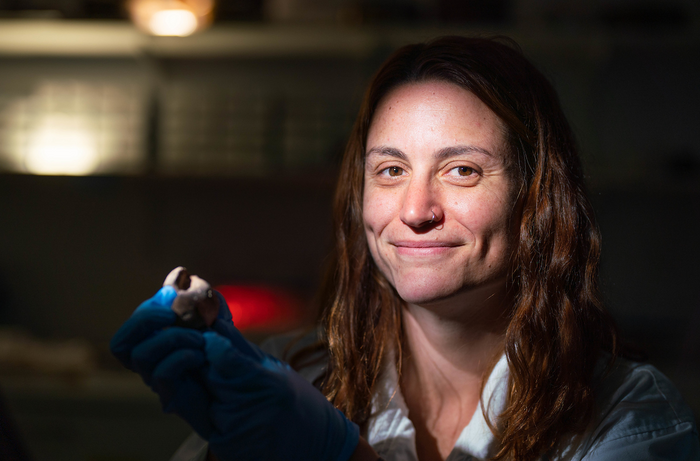The discovery by researchers from The Australian National University (ANU) of three bodies on Indonesia’s Alor Island, dating from 7,500 to 13,000 years ago, sheds new light on burial practices and migration of the earliest humans in island Southeast Asia.

Credit: Tracey Nearmy/ANU
The discovery by researchers from The Australian National University (ANU) of three bodies on Indonesia’s Alor Island, dating from 7,500 to 13,000 years ago, sheds new light on burial practices and migration of the earliest humans in island Southeast Asia.
Author of a new paper published by PLOS ONE, Dr Sofia Samper Carro, said the three burials are significant because the positioning of each body shows a different mortuary practice.
Dr Samper Carro said this might relate to multiple migratory routes through the area from thousands of years ago.
“Burials are a unique cultural manifestation to investigate waves of migration through the terminal Pleistocene to the Holocene period in Southeast Asia,” Dr Samper Carro said.
“Our results provide significant new data for understanding the evolution and diversification of burial practices in mainland and island Southeast Asia, contributing to a growing body of literature describing prehistoric socio-cultural behaviour in this region.”
Dr Samper Carro and the international team of researchers from ANU and the Gadjah Mada University in Indonesia uncovered more than 50,000 bones. This included the three bodies, one with extremities that were intentionally removed before burial, and two more individuals placed in a seated, and flexed (on side) positions.
“Our first excavations in 2014 revealed fish hooks and a human skull that was more than 12,000 years old,” Dr Samper Carro said.
“When the Australia-Indonesian team returned in 2018 to excavate the original burial, they found two more bodies buried in different positions above each other.
“The three quite unusual and interesting burials show different mortuary practices, which might relate to recent discoveries of multiple migratory routes through the islands of Wallacea from thousands of years ago.”
Dr Samper Carro said while the process of studying every item included delays due to the COVID-19 pandemic, the wait has been worthwhile.
“Once we realised we had uncovered such unique findings, I had a very long process of studying each and every piece. We called this paper The Talking Dead because of the stories each pieces tells,” Dr Samper Carro said.
“We’re very pleased to present a paper that shows how burial practices can complement data on genetic diversity from one of the current research hotspots in Southeast Asia.”
Dr Samper Carro completed her research on the Tron Bon Lei burials through a Gerda Henkel research scholarship. Fieldwork in Alor was funded by the ARC Centre of Excellence for Australian Biodiversity and Heritage.
Read the researchers’ paper in full: Talking Dead. New burials from Tron Bon Lei (Alor Island, Indonesia) inform on the evolution of mortuary practices from the terminal Pleistocene to the Holocene in Southeast Asia.
Journal
PLoS ONE
DOI
10.1371/journal.pone.0267635
Method of Research
Observational study
Subject of Research
Human tissue samples
Article Title
The talking dead: burials inform migrations in Indonesia
Article Publication Date
25-Aug-2022
COI Statement
Research funded by a Gerda Henkel research scholarship and the ARC Centre of Excellence for Australian Biodiversity and Heritage.




